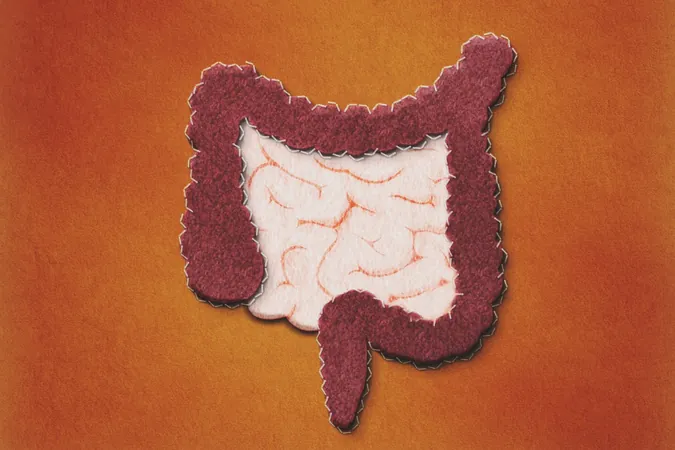
Groundbreaking Diabetes Treatment Involves a Surprising Source: Fecal Matter!
2025-01-14
Author: Ling
Groundbreaking Diabetes Treatment Involves a Surprising Source: Fecal Matter!
In a remarkable turn of events in diabetes management, a recent study indicates that a little bit of donated fecal matter could significantly alleviate gastrointestinal issues faced by individuals with type 1 diabetes. Conducted by researchers at Aarhus University Hospital in Denmark, this trailblazing research shines a light on fecal microbiota transplantation (FMT) as a potential game-changer for diabetes care.
This small but rigorous study involved a randomized, double-blinded, and placebo-controlled trial with 20 participants suffering from type 1 diabetes and moderate to severe gastrointestinal problems. The participants were divided into two groups, with half receiving capsules containing donor feces, while the other half received a placebo. Remarkably, the results showed that those who underwent FMT experienced a substantial reduction in gastrointestinal symptoms compared to their placebo counterparts, all without major side effects.
Type 1 diabetes, characterized by the autoimmune destruction of insulin-producing pancreatic cells, leads to chronically elevated blood sugar levels. While synthetic insulin and various medications are available, many patients continue to experience additional health complications, particularly involving the gastrointestinal system. Studies have previously suggested that the gut microbiomes of individuals with type 1 diabetes differ significantly from those of healthy individuals, which may exacerbate their symptoms. FMT aims to restore a healthier gut microbiome by introducing beneficial bacteria from a healthy donor.
In this pivotal study, the efficacy of FMT was evaluated using the Patient Assessment of Gastrointestinal Symptom Severity Index, a scoring system that gauges symptom severity on a scale from 0 to 100. Participants in the FMT group saw their median scores plunge from 42 to 25, while those in the placebo group only slightly improved from 47 to 41. The findings exhibited a profound change in participants' microbiomes post-treatment, reinforcing the therapy's potential effectiveness.
Despite the promising results, the researchers caution that their investigation is based on a small sample size, necessitating further studies with larger populations to fully validate FMT’s utility in treating gastrointestinal issues associated with diabetes. Currently, FMT is primarily recognized for its effectiveness in combating recurrent gut infections caused by *Clostridioides difficile*. However, the outcomes of using FMT for other gastrointestinal disorders have been inconsistent.
The study’s authors predict a bright future for FMT, claiming, "Our findings suggest that FMT may represent a potential new therapeutic option that could fundamentally transform the current approach to treating bowel symptoms in patients with type 1 diabetes." They express hope that FMT could eventually be adapted for patients with type 2 diabetes as well.
As researchers continue to explore this innovative treatment avenue, those suffering from type 1 diabetes and related gastrointestinal problems may find a glimmer of hope in the near future. Given the low-risk profile and the significant impact it could have on quality of life, FMT could become a valuable tool in diabetes management, creating a new path toward better health for countless individuals worldwide. Stay tuned as this promising research progresses!

 Brasil (PT)
Brasil (PT)
 Canada (EN)
Canada (EN)
 Chile (ES)
Chile (ES)
 Česko (CS)
Česko (CS)
 대한민국 (KO)
대한민국 (KO)
 España (ES)
España (ES)
 France (FR)
France (FR)
 Hong Kong (EN)
Hong Kong (EN)
 Italia (IT)
Italia (IT)
 日本 (JA)
日本 (JA)
 Magyarország (HU)
Magyarország (HU)
 Norge (NO)
Norge (NO)
 Polska (PL)
Polska (PL)
 Schweiz (DE)
Schweiz (DE)
 Singapore (EN)
Singapore (EN)
 Sverige (SV)
Sverige (SV)
 Suomi (FI)
Suomi (FI)
 Türkiye (TR)
Türkiye (TR)
 الإمارات العربية المتحدة (AR)
الإمارات العربية المتحدة (AR)